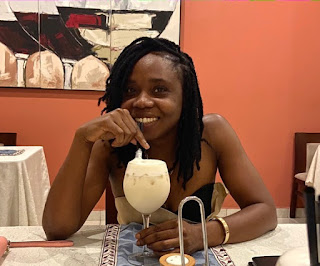Surviving academic life: a “reality show”
In our October 2020 blog, an analysis of the current situation of academics with respect to workload and the associated unease was unpacked. The blog post ended with a call to action for us academics to share our experiences and challenges as a starting point for working towards possible solutions. By reflecting on these experiences and challenges, we are hoping it will help pave the way for getting out of the cycle of stress and “abuse” as well as find ways to challenge the status quo and the “that’s how it has always worked” mentality. In continuation of the discussion, I will be sharing some of my experiences from 2019 up till date highlighting how the COVID-19 lockdown experience and having to work from home have played a role in my hitherto overburdened schedule.
In 2019, I had not only been honoured to be selected as an Africa Science Leadership Programme (ASLP) fellow, but I also signed up to professionally develop my career through a postgraduate diploma in higher education - all these on-top of my usual academic endeavours of postgraduate teaching, research, service and all things academic, ad hoc versus planned! These two new responsibilities came with new experiences and challenges that I had not fathomed. Also, let’s not forget my parental and social responsibilities.
The ASLP (initial 5.1 meeting) required that we start a leadership initiative. Our initiative, titled “academics@ease”, for which this blog post contributes to, started off with very big ambitions and proposals including coming up with a reality show titled, “housewives in academia”, depicting the lives of the four @ ease founding members, Prof Inglesi-Lotz, Prof Fanelwa Ajayi, Dr Mante and myself navigating academia with no qualms hopefully! The realities of life, academia and COVID-19 to an extent did not allow these to materialise as initially envisaged. Rethinking our model has set us on a path of continuation bolstered by the training we received at ASLP 5.2, held in October 2020.
Despite the initial challenges and delays with the project (stemming from our unease), I find myself consciously or unconsciously practising some of the ideas we came up with at ASLP 5.1 e.g. freeing up my weekends to focus on family, saying “no” when I can, going on to join mentorship programs like the Africa Academy of Sciences (AAS) with the hope to find a community of like-minded people with whom I can share my experiences and learn from. In effect, these conversations are already yielding fruits.
As a mother of four, I have to navigate motherhood and academic life while making sure my career aspirations and plans are on track. All these were exacerbated this year by the COVID-19 pandemic where I found myself having to move to emergency learning (as part of my professional development course(s)), emergency teaching, online supervision, and essentially performing 90% of my academic work online. Doing this and having to home-school at the same time made the “reality show” even more daunting. How I have navigated this time period while being sane involved taking calculated moves.
As part of this “reality show”, on a given day, I am a researcher managing several different responsibilities including managing a couple of research facilities, on another day a mentor, and on another, a reviewer and yet on another, I am a keynote speaker, a member of an organising committee for a conference or an invited guest to an international workshop! It is a surviving game basically where the academic takes on all these competing roles and is expected to win in each case from the institutional, national to the international level. They are expected to publish, produce publications or patents, graduate students, train the next generation, transfer skills, and not just any skills but graduate attributes meant to build the next generation, to establish their careers and become recognised internationally.
So how do we go about surviving and navigating in this space? In my experience, I consciously try to manage pressure through dance, exercise, gardening, engaging with a community of like-minded people going through similar challenges not just at the mentorship level as mentioned earlier, but through career development programs. In addition, I find that quick conflict resolution, reading and learning something new each week, on a topic outside of my usual academic life helps. On both the work and home front, I delegate where possible. Some examples include getting the kids to take turns in doing chores and asking the older ones to monitor schooling projects for the younger sibling. As a facility manager at work, I allow students to take turns in handling bookings for the facility and assist where they can with the day to day running.
.
Despite the demands of academic life, as a researcher, I am happy that my job affords me flexibility. However, without proper time management, navigating through some of the challenges and the workload that comes with the different roles academics play could lead to a breakdown and inability to perform. In addition to some of the ways I have elaborated above to fight unease, I find that communicating with colleagues, sharing the workload, prioritising tasks, and sometimes just taking time to let the steam off, and focusing on personal care has worked for me.
How have you handled the pressures of academia in your daily routine? Did you cope better before or during this COVID-19 era? I would like to hear how my @ease sisters and fellow academics in general continue to navigate these challenges.
Join the discussion with the academics@eaze community (Twitter handle: @academicsateaze).
Written by Dr Pascaline Fru, University of the Witwatersrand,
One of the Fantastic Four
Twitter: @pascusfonteh





Comments
Post a Comment